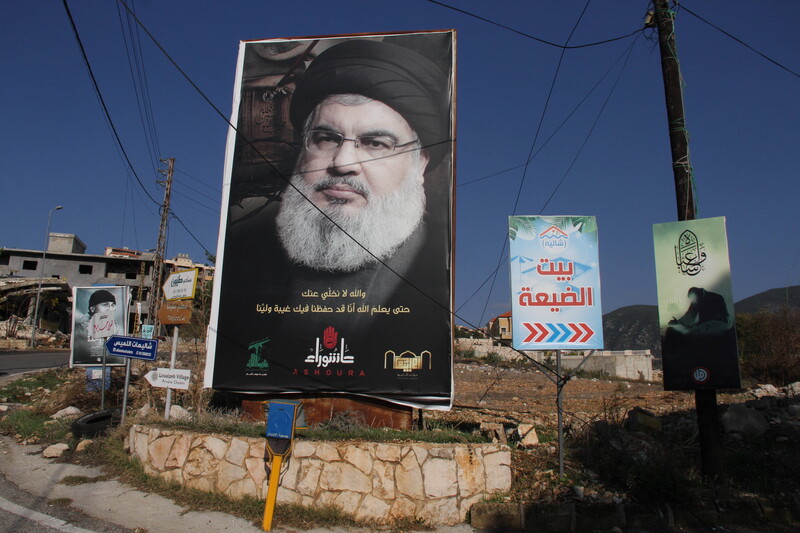The Electronic Intifada 5 March 2025

Arabsalim village after a ceasefire was declared in Lebanon, 30 November 2024.
SIPAThe sound of gunfire marked the funeral procession in Arabsalim, a small southern Lebanese town. A Hizballah fighter – killed by the Israeli military – was being laid to rest.
Only a small part of the martyr’s body had been found. It was wrapped in cotton and prepared for burial on 20 January.
Posters bearing the photographs of numerous martyrs can be seen on lamp posts and in people’s homes across Arabsalim. The posters are displayed alongside the flags of Hizballah and its ally, the Amal movement.
There is an olive grove facing my family’s home in Arabsalim. It was there that my aunt Huda was killed in an Israeli airstrike in February of 1987.
She was among the victims of a long and brutal occupation of southern Lebanon which lasted from 1982 to 2000.
Huda was still in her teens and was drinking tea with her friends at the time of the attack. My uncle Ali, the youngest in the family, held her to his chest and pleaded with her to stay alive.
Ali speaks about the experience today as if it is something that somebody else witnessed.
“No one would believe what I have seen,” he told me. “No one would understand what we have endured.”
Israeli barbarity does not spare anybody in southern Lebanon.
At the height of Israel’s most recent attacks last year, I attempted a journey from the Hamra area of Beirut to my home in Chiyah, a Beirut suburb, so that I could retrieve my possessions. I did not know then that we would be displaced (and remain so today).
On my way, I witnessed an airstrike on a building in the Tayouneh area.
I heard people screaming and saw them running away in fear.
That experience mirrored what my mother went through in the earlier Israeli occupation of southern Lebanon.
She was in a state of constant tension, not knowing whether her family would live or die. After she finished work one day, she heard a thunderous noise.
“It was Israeli military planes,” my mother told me. “Horror crept into me. People were fleeing the streets. Everyone was looking for shelter. And I started to run, without knowing where to go.”
She would find herself surrounded by the parts of dead bodies.
“They were fragments of people. It was a massacre. Soon, the screams [of survivors] became louder than the roaring of Israeli planes.”
Inheriting trauma
Israel’s latest invasion has forced me to confront the suffering of previous generations. My generation has not only inherited their trauma but lived through new atrocities.
Israel’s drones are a harbinger of death and destruction. They are still being flown over southern Lebanon.
Israel is continuing to conduct airstrikes and to destroy homes in southern Lebanon. The Lebanese army does not intervene.
“It isn’t their fault,” a 63-year-old man living in Arabsalim told me. He points out that the West has insisted that the Lebanese army should not have the capability to fight Israel.
“Resistance is our only means of responding to the occupier,” he added.
The man’s message is clear. We will not be forced into the American-Israeli trap of relinquishing our right to self-determination.
And we refuse to become a part of the larger imperialist campaign aimed at turning our people into vassals of the United States.
Armed resistance is the only force on earth that serves the interests of our people and instills within us a confidence that cannot be broken with Israeli airstrikes or threats from Washington.
In southern Lebanon, we have learned to “greet” our occupier with the words “death is better than humiliation.” We will remain steadfast and defiant, even if we are turned to dust and only a brick remains of our homes.
The catastrophes faced by previous generations have been repeated. But we always emerge from them with an even deeper attachment to our land.
Roqayah Chamseddine is an independent Lebanese journalist. She is the co-host of the Delete Your Account Podcast.



